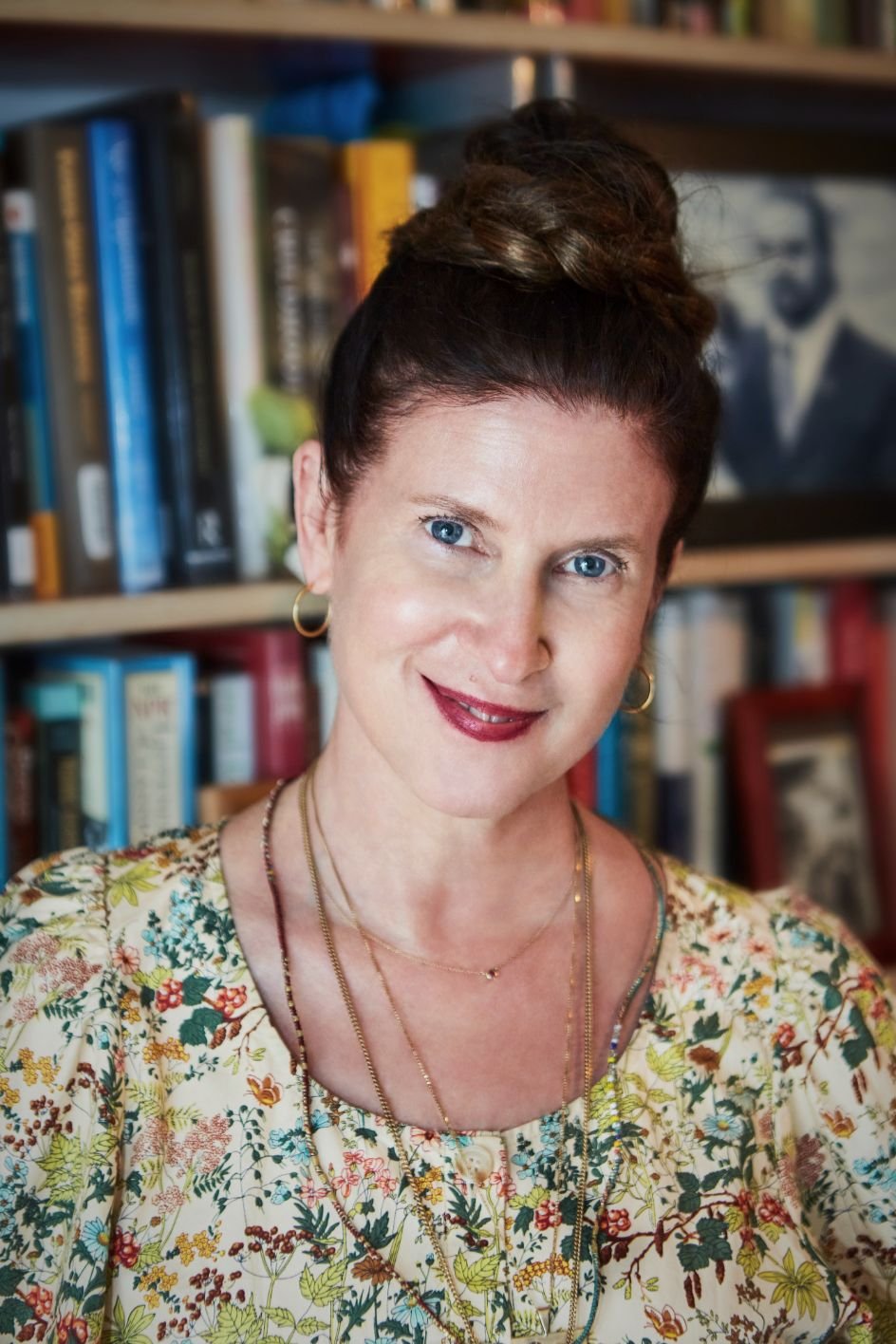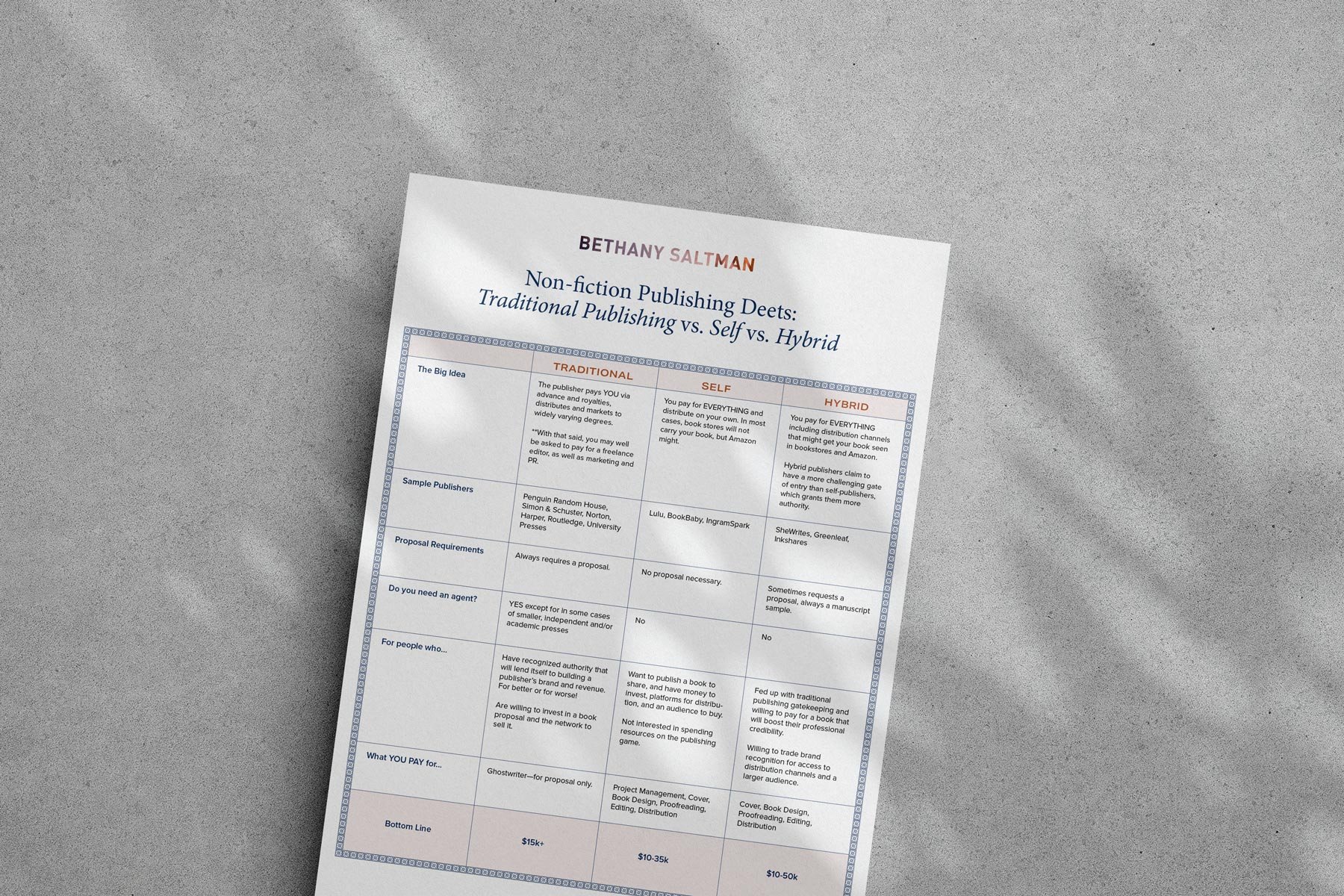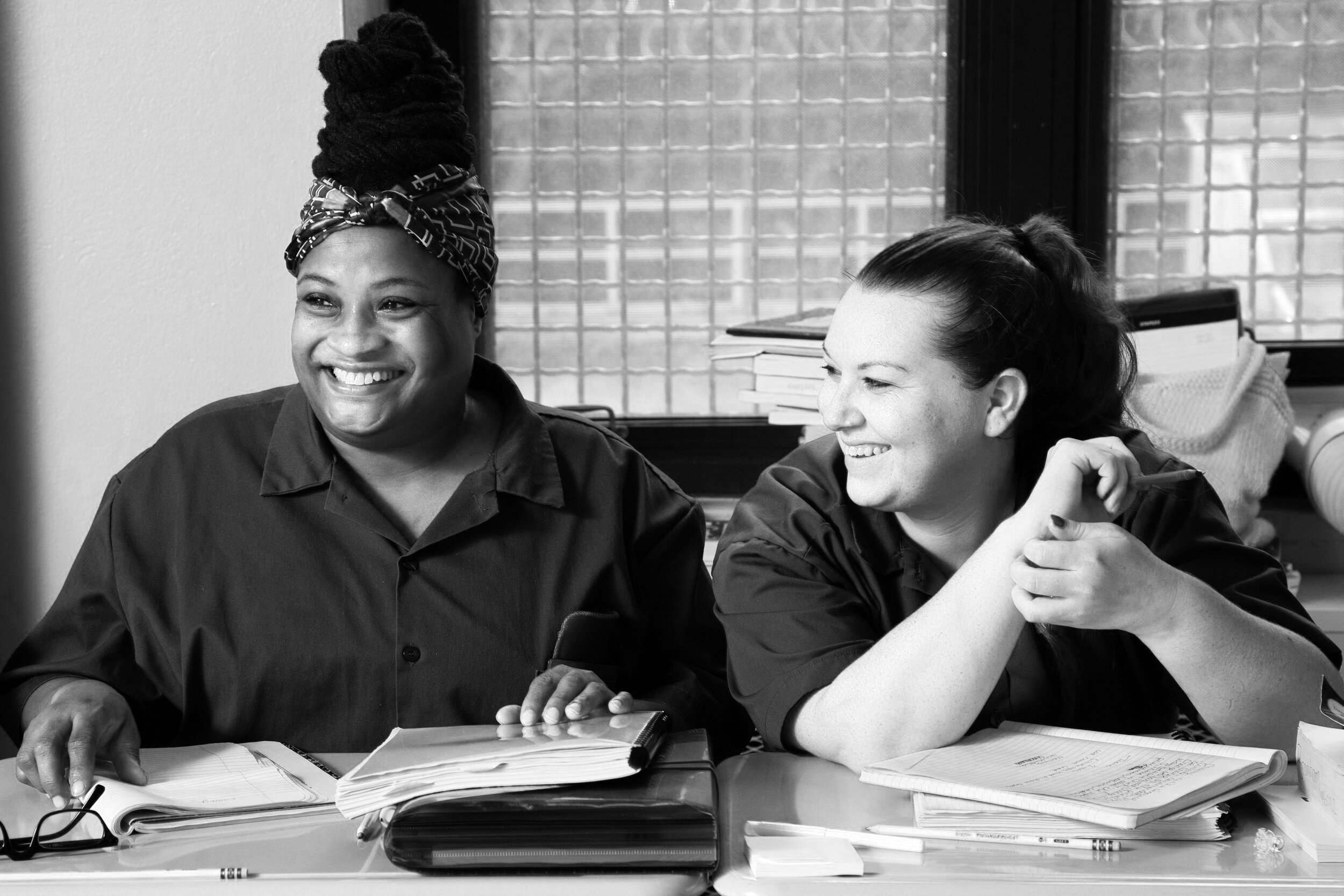Sell your book, not your soul.
Crafting a nonfiction book proposal that sells is an art that pushes you to discover your deep expertise and claim your author-ity—sometimes before you think you’re ready
I’m a little weird.
I get up at 4:15 am. I’m a big fan of hot, sticky humid days (yes, even in the city!). And I love nonfiction book proposals.
What exactly is a book proposal, you ask?
It’s that deeply misunderstood document that sells your book to agents and editors. Unlike in the world of fiction, where writers write and then try to sell their manuscript, in the world of nonfiction, writers sell an idea, then they write their book.
Because nonfiction book proposals interrupt some romantic mythology around the writer as artiste, and bring the business of books front and center, writers love to hate them.
But I’m here to change all that.
Book proposals vary in length and style, but generally speaking, a proposal is a 20-100 page, compelling, dramatic, narrative pitch deck. Included is the idea of your book (your hook), your table of contents, your marketing plan, your sample chapters and your author platform—that highly charged section where you have to describe all of your accomplishments, your followers, your publications, your network, aka, a your author-ity.
And don’t worry, if you don’t yet feel like you have much of a platform, you’re not alone! We’ll go through this platform business in great detail—what it means, how it feels, and how to build one. And then, we’ll work together to train you on how to leverage every little bit of your well-earned platform.
Writing itself is often a private, in your prayer-closet affair. But selling is very public, and can feel pretty scary if you’re not used to putting yourself out there.
But you can take solace in the fact that pretty much every nonfiction book published by a “traditional publisher” —memoir, self-help, biographies, cook-books, you name it—comes into the world as a proposal.
Think of it like this: you’re asking publishers to invest in the start-up that is you and your book. Your proposal is your business plan. The reason I work primarily with women seeking traditional publishing deals is because most hybrid or self publishing outfits don’t require proposals. And so, where’s the fun in that?
Not sure which publishing path is right for you?
The difference between traditional, self-publishing and hybrid publishing
What this all means is that even you—emotional, brilliant, messy, creative, but maybe not-business-minded (yet!), or just-shy-to-market yourself—you will have to write a proposal if you want to sell a book to a publisher.
I know it’s daunting.
But you can do it.
Are we there yet?
When I tell first-time writers that before they start writing their non-fiction book, they’ll have to write a proposal to sell to an agent then an editor, their first question is always—how long will that take?
It’s natural to want to know what kind of investment you’re about to make. Unfortunately, the answer to the “are we there yet” question is a maddening one: It all depends.
It depends on how cooked your idea is, and how ready the world is to receive it.
But here’s a secret: when you approach your book proposal as an actual form of writing, as a genre, as an art, you’ll become an expert on your topic—and yourself—you’ll have a shot at getting the book deal of your dreams, and you won’t have wasted a moment of your time.
And I’m not asking you to do anything I haven’t done myself.
I’ve written three full proposals myself (only one sold—to Random House! Third time’s the charm) and helped many people just like you write their proposals and sell them to major publishers.
Here’s the thing: Proposals are unforgiving and I love them for that. They’re the unabashedly goal-oriented gatekeepers of the publishing world. And they force us into depth and clarity, creating chapters out of chaos, searching for guiding metaphors out of deep sensations and feeling.
Proposals make us claim our author-ity out loud, before we feel ready. Which is particularly challenging for women who often lose themselves in patriarchal perfectionism instead of diving into the mess of their intellectual pursuits head-on, heart first.
So let’s not waste another minute of our precious time hemming and hawing.
You might not feel ready, but that’s ok. That’s what I’m here for, and your new community of women.
We’re in this bookishness together.
bard prison initiative
Are you feeling heart-broken and frustrated by the inequality in our country?
Me too.
That's why I'm donating a percentage of all Book Coaching profits to Bard Prison Initiative, which gives people in New York State prisons access to higher education and supports alumni pursuing their professional and personal ambitions when they return home.
You can watch the documentary about this inspiring program, produced by Ken Burns, here.
And donate.






